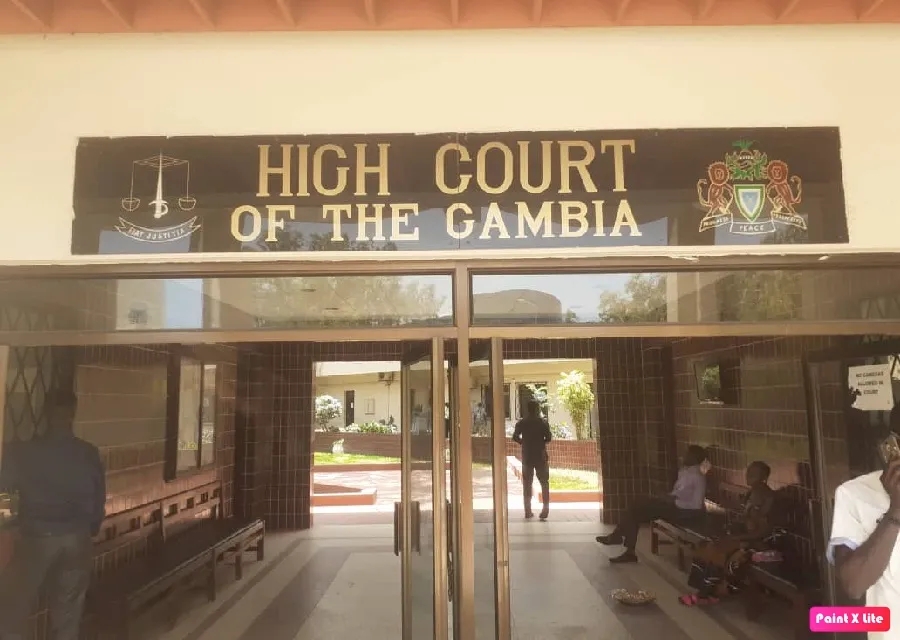Gambiaj.com – (BANJUL, The Gambia) – The High Court on Thursday witnessed a heated debate over the admissibility of confession statements in the ongoing robbery trial against three men accused of attacking the United Vegetable Oil Company.
Lawyer E. Sanneh, who represents the third accused and also stood in for the second accused, argued that the cautionary statements of the first and second accused were not made voluntarily. Sanneh told the court that the state failed to follow the proper legal procedure before tendering the statements as evidence.
“My lord, the cautionary statements of the first and second accused were not obtained voluntarily,” Sanneh submitted to Justice Omar Cham. “Also, no proper foundation was laid before they were tendered.”
Sanneh criticized the manner in which State Counsel MD Mballow presented the statements, claiming that merely asking the witness to confirm if he recognized the statement was not enough. “He only asked the witness if he could recognize the statement, and when the witness said yes, he went ahead to submit it. That is not enough,” Sanneh said, urging the court to reject the statements.
In response, State Counsel Mballow insisted that the process was properly conducted. He argued that the witness confirmed recording the statements and identified them in court, thereby satisfying the legal requirements for admitting them into evidence. “That means the foundation was properly laid,” Mballow said.
Addressing the question of voluntariness, Mballow contended that the law requires more than just a claim by the defense. “If the defense says the statement was not voluntary, they must prove that there was a threat or inducement,” he said, citing section 33 of the Evidence Act. He also pointed to section 25, which allows for the admission of a statement even if a threat was later removed.
Sanneh, however, disagreed, maintaining that once a statement is made under duress, it cannot be used in court, regardless of whether the threat was subsequently removed. He cited Evidence by Chief Justice Assan B. Jallow, which underscores that voluntariness is the principal test for admitting a confession.
Sanneh further argued that the statement should have been properly identified before being presented, not after. He requested Justice Cham to set aside the statements and conduct a mini-trial (voir dire) to determine their admissibility.
The case continues.










